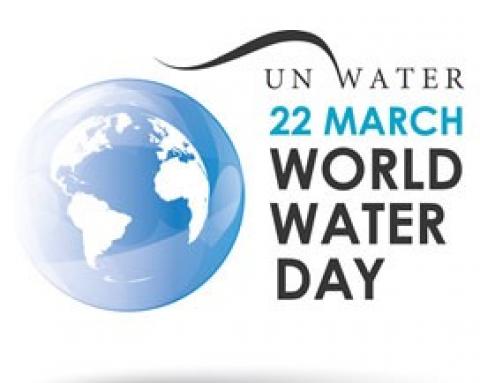
World Water Day is March 22.
Join us as we pray, study, and act on the importance of water for life and our need to protect this precious resource.
Pray
‘“Whoever drinks the water I shall give will never thirst (John 4:14).’ In this third week of Lent, the readings offer us the imagery of thirst and of water, inviting us to reflect on our deepest needs and desires, both spiritual and physical….”
Read the rest of the reflection on this past week’s gospel reading from our Lenten Reflection Guide here.
Study
1. Read an article by Maryknoll Lay Missioner Flávio José Rocha in Brazil about the right to water, as it is understood by the UN, and how this right can be protected.
2. The theme for this year's UN World Water Day is Water and Climate Change. There are several important connections between water and climate change:
- Pollution, drought and changing weather conditions exacerbate the global shortage of clean water as the world's population grows. Better, more sustainable management of fresh water resources is becoming critical.
- Oceans and wetlands are a major "carbon sinks," absorbing the extra carbon in the atmosphere. Preserving these ecosystems becomes vital as the threat of climate change increases.
- Several climate change mitigation strategies, including the use of biofuels, require extra water. We need to ensure that our efforts to protect the climate do not deplete our global water resources.
3. In this time of a global pandemic, water shortages in marginalized or vulnerable communities pose serious threats to life, making it impossible to maintain sanitation and prevent the spread of disease. Read an article in the New York Times about how water shortage is affecting a Syrian refugee camp during the pandemic.
4. Water inequality is a major problem. The UN states as many as 2.1 billion people have no safe water at home. And almost two-thirds of the world’s people have problems finding water in at least one month of the year. Of those who use unsafe water, some 80 percent live in rural areas. If trends continue, an estimated 700 million people across the world could have to leave their homes by 2030 because of a lack of access to water.
Act
- Explore https://www.worldwaterday.org/ to find ideas on how you can conserve water at home and to learn more about water conservation efforts around the world.
- Take water-related climate actions, such as taking shorter showers, and log them on the UN Act Now campaign page. Find ideas for climate actions on the Act Now page.
